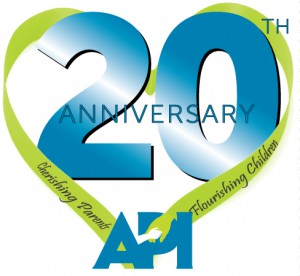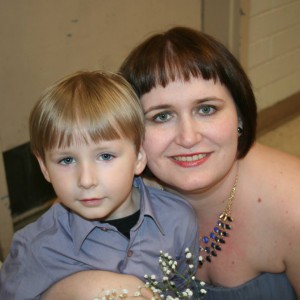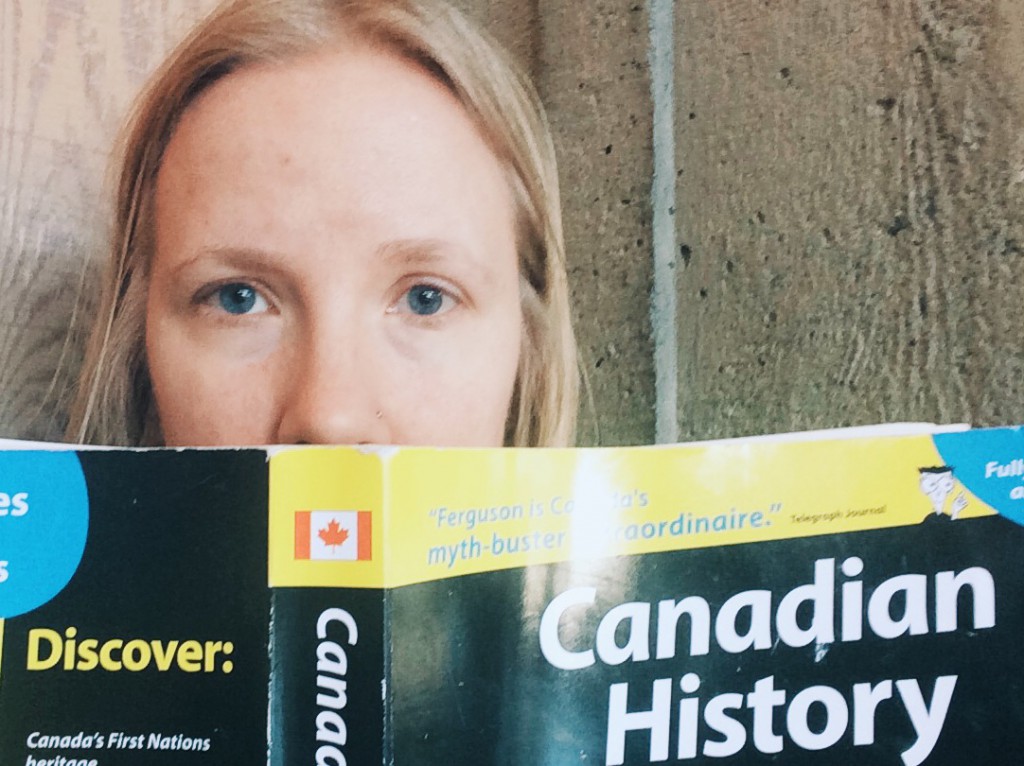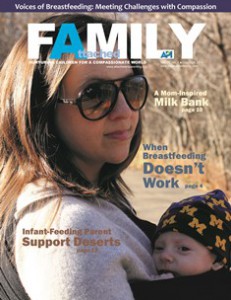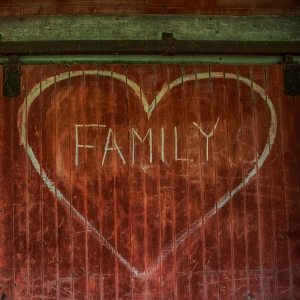 Through APtly Said, I have had the privilege of meeting Margie Wilson-Mars of Salem, Oregon, USA. A parenting writer and blogger, Margie and her husband of almost 20 years, Robert, have eight children ages 27, 25, 23, 21, 14, 12, 9 and 8—seven sons and one daughter, three of the boys who are on the autistic spectrum. Margie and Robert also have three grandchildren ages 7, 6 and 3.
Through APtly Said, I have had the privilege of meeting Margie Wilson-Mars of Salem, Oregon, USA. A parenting writer and blogger, Margie and her husband of almost 20 years, Robert, have eight children ages 27, 25, 23, 21, 14, 12, 9 and 8—seven sons and one daughter, three of the boys who are on the autistic spectrum. Margie and Robert also have three grandchildren ages 7, 6 and 3.
Now there’s a full household! I could hardly wait to share her Attachment Parenting (AP) story.
RITA: Thank you, Margie, for your time. To begin, how did you decide to first try out the AP approach?
MARGIE: By the time I found out there was an actual thing called AP, I had already been practicing it.
I was only 19 when I had my first son. My mother-in-law had been an oddity in the very early ’60s and breastfed her boys. My mother, who was 15 years older than my mother-in-law, was in my ear constantly with, “You just have to nurse for three weeks and then it does no good.” It was simply a reflection of her generation.
Even in 1987, I was the odd one out breastfeeding and refusing to let my son cry it out. I watched Dr. Jay Gordon on “The Home Show” on ABC—so radical then! My mom told me I was punishing myself.
RITA: Your mom didn’t agree with AP?
MARGIE: For the record, she was legitimately worried about me. It’s just what she knew. She was an amazing mom.
By the time my mother passed away, she was finally comfortable with my parenting style. Acceptance means the world to new moms, to all moms.
RITA: So who did you lean on for AP support?
MARGIE: When my daughter was born 19 months later, I found La Leche League meetings. I am a very solitary person, so in hindsight, I wish I’d participated more, but it did give me validation for what I felt.
I just got “worse” from there! I met Peggy O’Mara, went Dr. Sears happy—yeah, I was hooked.
RITA: And your husband is supportive of AP?
MARGIE: After getting remarried, my new husband instantly accepted and participated in AP. In fact, I don’t even recall discussing it. When our first son was born, he slept with us. Well, I should say he slept with his dad because he was only comfortable on Daddy’s hairy chest! Most of them did the same, but our last, preemie Adam, was partial to sleeping on his brother Mark or his “Sissy Mama,” our only daughter Stephanie.
RITA: At one point, you mentioned to me that AP saved your life. Can you expand on this?
MARGIE: When my first baby Steven was born, we moved in with my parents because I was scared to death. When he was 2 weeks old, my older sister came upstairs into my bedroom and asked me what I was doing. Apparently I calmly answered, “I’m going to try and finish feeding this baby, and then I’m throwing him out the window and following.”
I honestly don’t remember how it happened, but I ended up at my mother-in-law’s house where she tucked me into bed for some much needed sleep and took Steven. She would wake me up to feed him, keeping an eye on us, and then send me back to bed.
Her gentle manner just blew my mind, the total opposite from my family. Even the way she bathed him was so soft and stress free. No more watching the clock between feedings or freaking out because he didn’t poop that day.
My depression ran deep, and it took getting pregnant with my daughter Stephanie before it totally lifted. Being constantly reassured that listening to my instincts was not only OK, but good, made all the difference. I have no doubt that if I’d continued on the path I was on, I wouldn’t have made it.
RITA: The quality of parent support can really make all of the difference. I’m glad you found support when you did.
MARGIE: There have certainly been huge bumps in the road since, but my mother-in-law set the tone for my parenting. No matter how rocky things got at times, our attachment was never affected. For example, when my daughter and I clashed through her teenage years, she told me she never felt like she couldn’t crawl into bed with me and know that everything would be OK. Her grandmother is truly the one to thank for that.
RITA: I’m thankful for her, too. The world needs more parents like you—and her! So how has AP worked out for your family as it has grown?
MARGIE: I think the best thing was the ease of taking care of the babies when they were little. When the oldest four were teenagers and the babies were little, we had a gigantic cushy spot—spots are very important in our home—in the living room where I could just be with all of the boys, yet stay accessible to the older ones. It also forced my autistic boys to be social with their brothers.
People are still astonished when they see how cuddly our autistic sons are.
RITA: What is it like seeing your oldest children becoming parents themselves?
MARGIE: Even though we still have little ones at home, seeing our daughter with her children—just wow! She’s the best mother, so instinctive and giving. Our oldest son is a newly single dad and so intensely bonded to his son.
The evolution of parenting, seeing them working so hard to correct the mistakes we made and become even better, closer parents to their children: It’s a beautiful thing to see.
We’re really doing the same thing with our younger boys—improving and evolving. It can be a struggle to stop feeling sorry for yourself and just move forward.
The bigger the family, the more you need Attachment Parenting.
RITA: You mentioned that AP seems to be helping in parenting your children with autism.
MARGIE: This is huge for us.
My third child, Mark, has Asperger’s Syndrome. He is from the first wave of autistic children born in 1990 when it started to skyrocket. When he would nurse, he would pull his entire body away, trying so hard not to be touched any more than he had to. The more I’d pull him in, the harder he would fight. Autism wasn’t even on the radar. Mark self-weaned at 8 months old, and I was crushed. He was happy as could be as long as he was on his own.
When our sixth child, Nathan, was 3 months old, our oldest son kept saying, “Something’s wrong with him.” Teens are so subtle. We thought maybe he was just sensitive because he had suffered a birth trauma when my cervix was lipped over his head for over an hour while pushing during labor. An hour after birth, his face turned nearly black from the bruising.
Months later, while I was sick, my husband took Nathan for a checkup. We say that the baby we had died that day. Rob brought home this terrified, seemingly hollow baby we didn’t know. If there was something wrong before, it was a million times worse that day. While probably predisposed to autism, the vaccines finished the job.
Having had Mark, I knew that holding Nathan, feeding him and snuggling him through his fears was the only way to go. People are amazed when they see how connected he is. If I didn’t have him, my husband did. If he didn’t have him, his big sister did. He is a little cuddle monster, and while he has full-blown autism, he shows no signs of “don’t touch me, don’t look at me.”
By the time Justin, baby number 7, came along, we knew fairly early and said, “Ah, we have another Aspie!” Sure enough, he has Asperger’s like his older brother, Mark.
The parents of autistic kids I know have them in day-long therapy, speech class, tactile class, etcetera, etcetera. We could never do that. There’s even one mom I met who put her 12-year-old into a group home when he hit her 4 year old. She brings him home on Saturdays. I cried when I heard. It still breaks my heart to think about it.
The biggest difference is in how bonded we are to each other. It’s not unusual to see 140-pound, 12-year-old Nathan on his dad’s lap or mine, or finding them all in a big “puppy pile” playing video games. Our youngest, Adam, says, “My friends never sit on their mom’s laps. Isn’t that weird?”
RITA: Thank you so much, Margie, for your story. Is there anything else you’d like to share?
MARGIE: Recently, I’ve read a lot of parents online who have left AP. Most claim that AP parents are too militant and flip out if people stray from the Eight Principles. The parents that make these claims can scare off new moms who are may be only breastfeeding and want to find out more, or can’t get a good night’s sleep but feel wrong letting their baby cry. I hope that parents think about these things before they make that [judgmental] comment to a new mom.
 You never know when a precious family memory will start out as a seeming disaster!
You never know when a precious family memory will start out as a seeming disaster!

